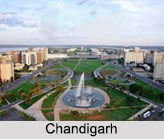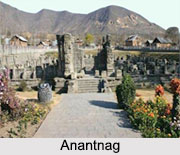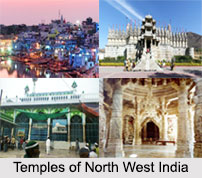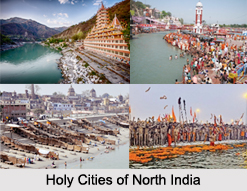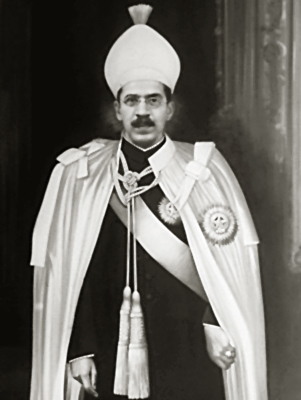 Hyderabad had undergone a change in the political system under the reign of the Nizams. This period was the prime time for the development of the British kind of Federal Constitution for Greater India. It included the time span of the rule of Lord Curzon to the time of the calling of the first Round Table Conference in London in 1930. The Berar (Hyderabad) episode of 1926, on the other hand, under Lord Reading was reviewed by Sir Terence Keyes, who admitted that it was the Nizam`s precipitate action, his ill-digested opinions on the Berar issue, and the improper presentation of the case which had jeopardised its success. The Resident boldly draws the attention of his government to the fact that seven years ago His Exalted Highness` complaints against government and claims to a special status were advanced with `an animus and inaccuracy which defeated its object`. But at the same time, the British Resident was fair enough to confess that he felt there was also some mishandling by his predecessor Sir William Barton of the Nizam`s claim to relations different historically from those of other states. The case had been examined by government in 1926 by wrongly involving the issue with British paramountcy.
Hyderabad had undergone a change in the political system under the reign of the Nizams. This period was the prime time for the development of the British kind of Federal Constitution for Greater India. It included the time span of the rule of Lord Curzon to the time of the calling of the first Round Table Conference in London in 1930. The Berar (Hyderabad) episode of 1926, on the other hand, under Lord Reading was reviewed by Sir Terence Keyes, who admitted that it was the Nizam`s precipitate action, his ill-digested opinions on the Berar issue, and the improper presentation of the case which had jeopardised its success. The Resident boldly draws the attention of his government to the fact that seven years ago His Exalted Highness` complaints against government and claims to a special status were advanced with `an animus and inaccuracy which defeated its object`. But at the same time, the British Resident was fair enough to confess that he felt there was also some mishandling by his predecessor Sir William Barton of the Nizam`s claim to relations different historically from those of other states. The case had been examined by government in 1926 by wrongly involving the issue with British paramountcy.
The Government of India had declared that it was historically incorrect to assert that the Indian States were independent and possessed of full sovereignty when they first came into contact with the British. It was, then, the thorough investigation on the part of the Resident, Sir Terence Keyes, which fully established the fact that it was the misinterpretation of the doctrine of sovereignty of the Indian Princes (as put forward by Sir Leslie Scott, the Counsel for the Indian Princes on the part of the Nizam) which had brought the seventh Nizam into trouble with the Paramount Power. And it was this exposure of the evil designs of the Chamber of Princes towards the Nizam which in its turn might have deterred Mir Osman Ali Khan from collaborating closely with the working of the Chamber of Princes. Thus, it was this hidden fear in the Nizam, from the ill motives of the Chamber, which was really responsible for his adopting a policy of detachment towards the Chamber and its organizations.
But the background to Hyderabad`s policy of detachment towards the Chamber of Princes became clearer when the question arose of Hyderabad`s separate representation at the Round Table Conference. The Viceroy, His Excellency Lord Irwin`s announcement of a conference of all shades was called in London to formulate the future constitution of India. It is worth looking now rather precisely, as to why the Hyderabad Ruler and his Executive Council, although fully realizing the delicacy of the situation and conscious of the individual and the dominant role they wished to play in the case of the grant of dominion status to India, still wanted to persist in their policy of aloofness from the Chamber.
Osman Ali Khan realised the seriousness of the Indian political situation, and determined to play an outstanding role in finding a successful solution to the issue. Moreover, the same earnestness of the Nizam`s resolve to work with the British in solving the Indian political deadlock, and in full cooperation with all the Indian communities, was evidenced in his Firman, which he issued to his people. For according to the Hyderabad Constitution, political matters or foreign affairs came under the direct control of the Hyderabad ruler.
Thus, on the basis of this resolution of the Executive Council that Osman Ali Khan had sanctioned the formation of the External Affairs Committee of his Executive on 23 January 1923. Further, on 17 February 1930, this same committee was directed by firman to attend the deliberation of the Chamber of Princes at Delhi. Also, it is interesting to note that this committee, soon after arriving in Delhi had recommended to the Nizam that Hyderabad should maintain its attitude of detachment toward the Chamber of Princes. Now this policy of detachment of Hyderabad from the Chamber of Princes took the form of the demand by the state for separate representation at the impending Round Table conference to be held in London. Various factors have governed the Nizam`s policy of detachment toward the Chamber of Princes and his insistence on having separate representation for his State at the Round Table Conference. The root and primary cause for the aloofness of Nizam towards the Chamber lay not only in the misinterpretation of the doctrine of sovereignty on the part of the Nizam by the special organization of the Chamber of Princes as evidenced by Sir Leslie Scott`s statement before the Butler Committee. It is to be attributed to the Nizam`s real dread of the twin movements at that time which were being pushed by various means on the borders of Hyderabad and in the State itself, namely, the so-called Maratha revival, and the more subtle Andhra movement. It was these two movements which motivated and activated the Nizam`s dread of the Chamber, and thus accounted for Osman Ali Khan`s constant and persistent efforts to keep himself aloof from the activities of the Chamber of Princes and of its organizations.
The Nizam and his government were quite aware of the socalled Maratha revival which purported to have had its origin in the greater Maratha states. Moreover, it was well known in Hyderabad that the special organization of the Chamber of Princes had close connections with this Maratha or Brahman movement. The Nizam and his government, thus, quite rightly wanted to shirk the Chamber, because of its pro-Maratha and pro-Brahman inclinations. The pro-Brahman sympathies of the Chamber of Princes, as well as reminiscences and experience of the past Maratha history had made it quite evident to the ruling class of Hyderabad that these two revival movements were to be reckoned as sources of great danger to the existing structure of the Hyderabad state. Later it had been perceived that it was this same Maratha fear which had earlier in the late-eighteenth century and at the dawn of the nineteenth century been decisive in determining the Nizam`s relations with the British East India Company`s Government, particularly during the crucial period of the signing of the Treaty of General Alliance of 1800. This treaty, indeed, to a large extent moulded and influenced the Anglo-Nizam relations for the next 150 years, until Hyderabad`s integration into the Indian union.
The Nizam of Hyderabad and his Government claimed that Hyderabad should be given separate representation at the Round Table Conference, the military aid that was given by the Ruler of Hyderabad to the British Government under the Treaty of General Alliance of 1800 in the form of the enhanced Subsidiary Force, was by itself sufficient to elevate the Hyderabad ruler to an exclusively higher category than the heads of the other princely states of India. Indeed, the Nizams of Hyderabad through the enhanced Subsidiary Force and the Hyderabad contingent and moreover, by the cession and perpetual lease of large districts for the maintenance of these forces had contributed to nearly one-twentieth of the army in India.
Consequently, the Government of India decided that the Indian States` delegation would be expressly constituted to include elements other than those which have entrusted the presentation of their case to the Standing Committee of the Chamber of Princes. Hence, the nominee of Hyderabad would therefore not only be able but would be expected to voice the point of view of which this great Mohammadan state was the chief, but by no means the only exponent. Thus the British Government was going to the furthest extent possible to appease the suspicions and fears of the Nizam and the Hyderabad Government with a view to accommodating them with the future constitution of Greater India.
Moreover, the differences of views which existed between the Council and the Nizam in dealing with the political situation in the state, tended to reverse the relations which previously existed between the Council and the Ruler, so much so that the Council eventually got the upper hand in its relations with the Nizam. With the passage of time, the change of relations between the Hyderabad Executive Council and the Ruler, as well as due to the educational, cultural and economic progress and the all-round reforms that were being carried out in every branch of the Hyderabad administration under Nawab Mir Osman Ali Khan, due to the earnest efforts, endeavours and zealous work of the British-lent officers, from 1914 onwards had held the top posts in all the key departments of the state.
Later, in the deal with the issue of Berar, the Hyderabad Executive`s Note had clearly stressed the fact that the Nizam had possessed sovereign rights over the territory of Berar since the Treaty of 1804. And although by the Treaties of 1853 and 1860 the Nizam`s administrative rights over the territory of Berar were entrusted to the British Government, and by the Treaty of 1902, the territory of Berar was permanently leased to the British Government, even under these treaties the Nizam`s sovereign rights over the territory of Berar were clearly accepted by the British Government. Further, the Simon Commission also in its report had admitted that Berar was the Nizam`s territory. It was stated in the report that under the impending constitutional changes, any change in the constitution of Berar should be carried out in consultation with the Nizam. Under the Treaty of 1902, with a view to effecting an economy in the expenditure of running a separate administration for Berar, Berar had been integrated within the administration of the Central Provinces.
Further, it is worth observing that the Hyderabad delegation during their visit to Shimla with a view to attending to the vital question of the defence of their state, as well as safeguarding the Nizam`s proprietary rights in Berar, in an interview with His Excellency Lord Irwin requested that His Lordship in consultation with the Nizam should appoint the Berar delegation separately from that of Hyderabad, or that of British India. Moreover, the most important and genuine advice which was tendered by the British regarding the Hyderabad government`s Defence Memorandum and the British Government`s military commitments to the Nizam and his state, was the proposal that the British Resident made to Mir Osman Ali Khan, namely that it would be wise if His Highness with proper safeguards would come into an All-India Federation straightway, so that His Majesty`s representative, the Viceroy, would be able to play his part in safeguarding the interests of Hyderabad at par with the other major provinces of British India. The British Resident, Sir Terence Keyes, discussing the pros and cons of the federal form of government from the point of view of the states and specifically from the point of view of Hyderabad state, said that in accordance with the Simon Commission`s plan in the first place, if only a federation of British provinces was formed, with the proviso that the states would join in later of their own will, the states would stay out, as the plan for federation was on a purely democratic basis the Federal Assembly being elected on a population basis.
It would also be worthwhile to note here that the British politicians and statesmen were quite genuine in their utterances concerning the value of the Indian states to the future Constitution of India. This strong political position occupied by the Indian states with regard to British public and parliamentary opinion is reflected in the changed attitude of the rank and file of the British Indian politicians towards the Indian states, within a few weeks of their arrival in England to attend the first Round Table Conference. Consequently, following the direction of the British Government, Nawab Mir Osman Ali Khan had also eventually come to believe that a federal form of government subject to certain conditions might be the best all-round solution for achieving the objective of Greater India while at the same time maintaining his relations with the British Crown and keeping his status as the premier Indian State.
The complete success that the Indian states had attained and their dominant role throughout the proceedings of the first Round Table Conference, had justified to the fullest possible extent the British statesmen`s and politicians` declarations regarding the important part that the Indian states would play in the formation of the future constitution for Greater India, while trying to preserve intact their own internal sovereignty and autonomy, as well as their own treaty relations with the British Crown, vis-a-vis British India. Finally it was evidenced that the Nizam continued in his determination to preserve Hyderabad`s position as a separate state in alliance with the British, against the advice of his British friends and in spite of warnings of the disastrous consequences if Hyderabad did not join the federation.



